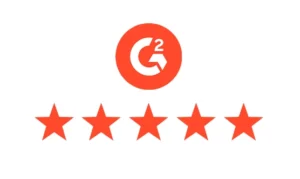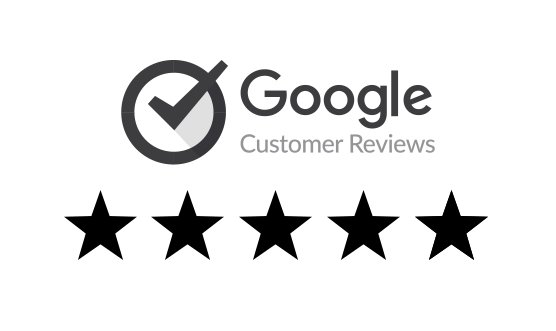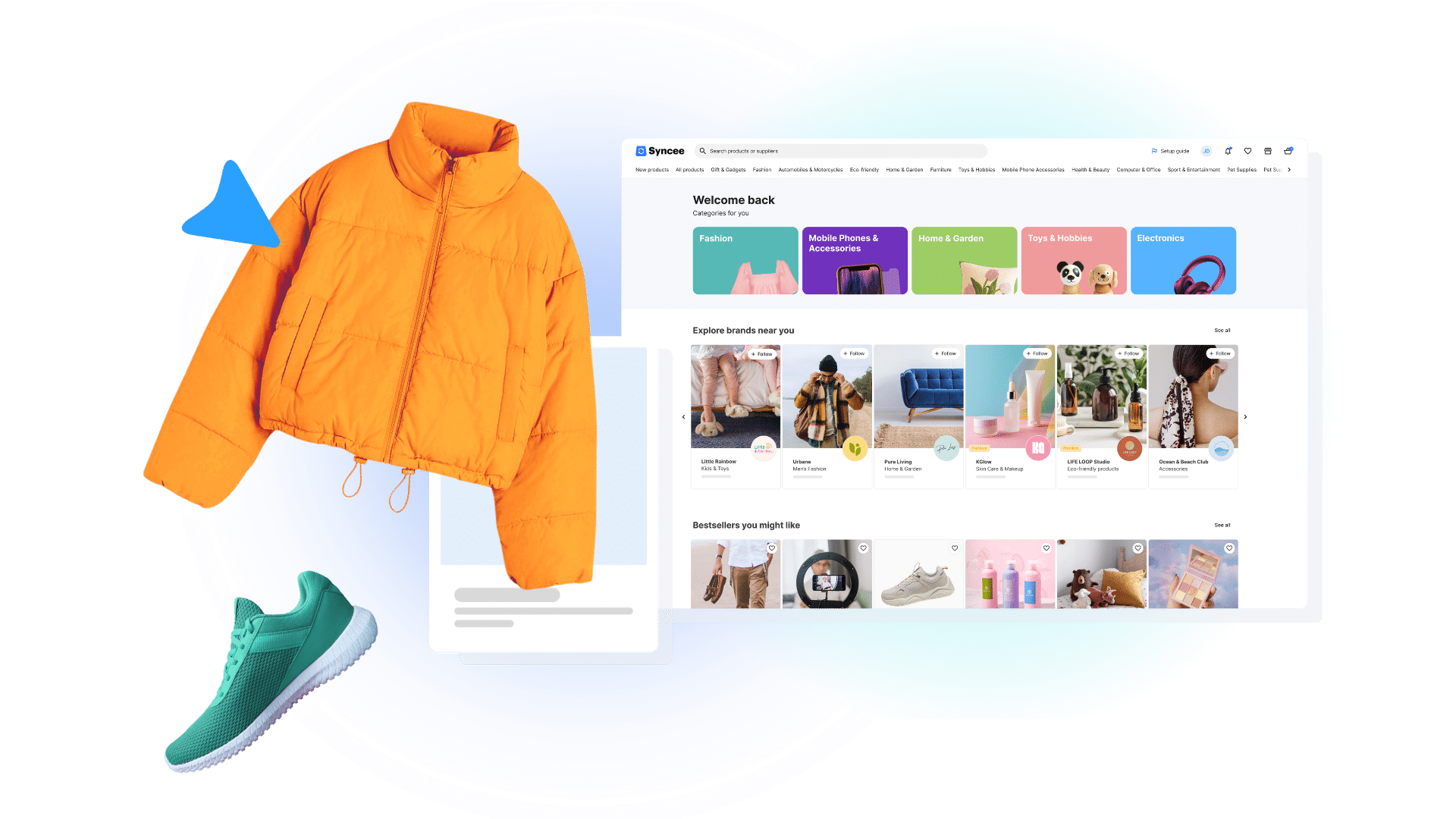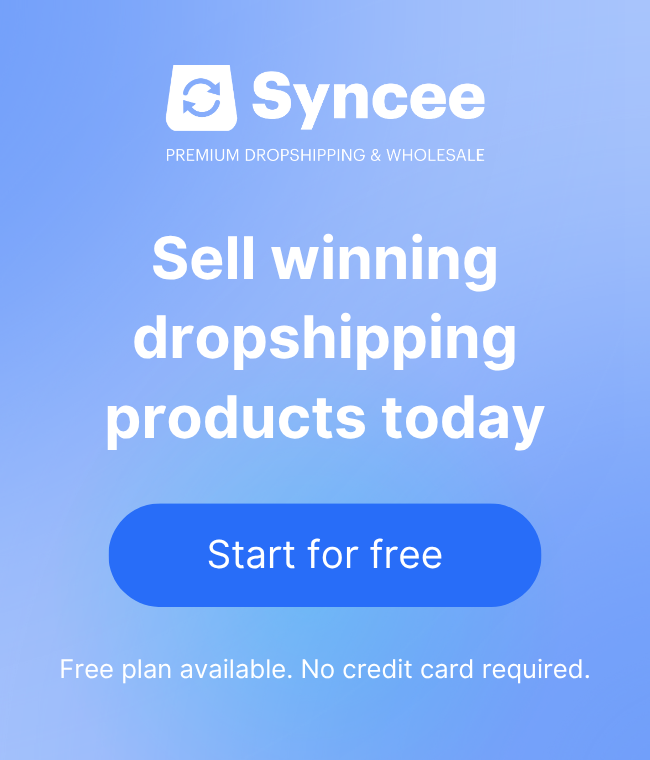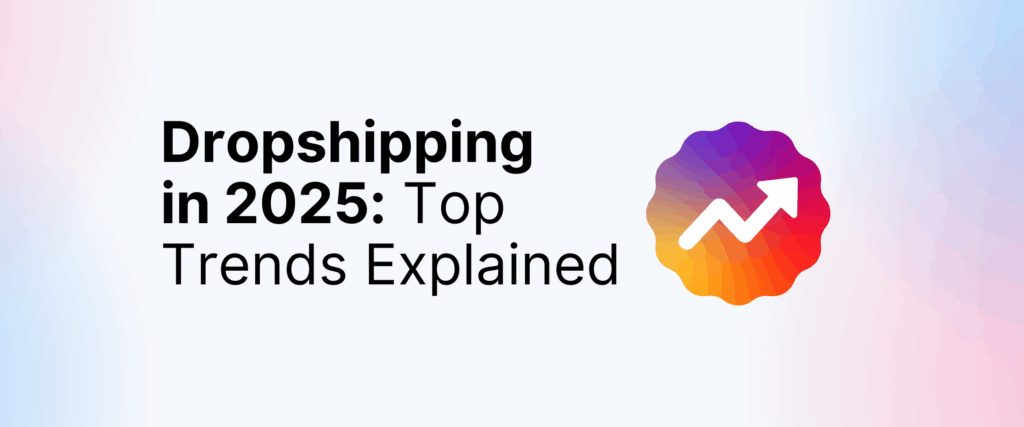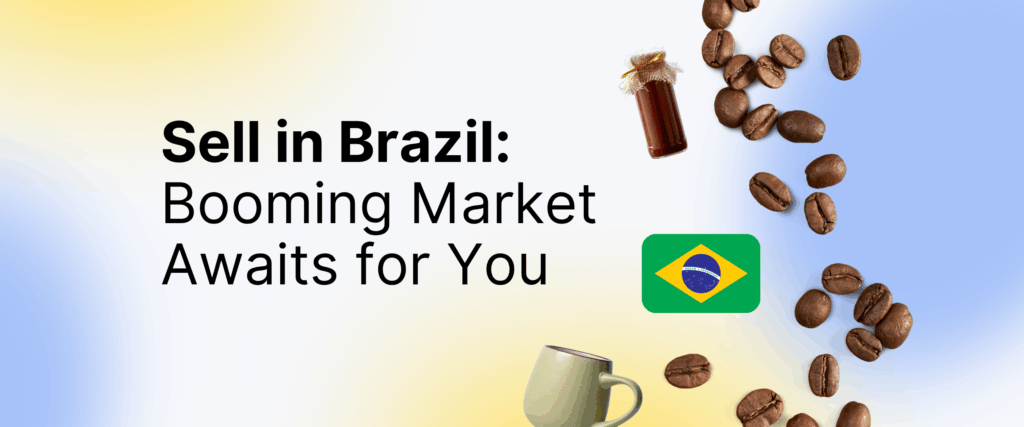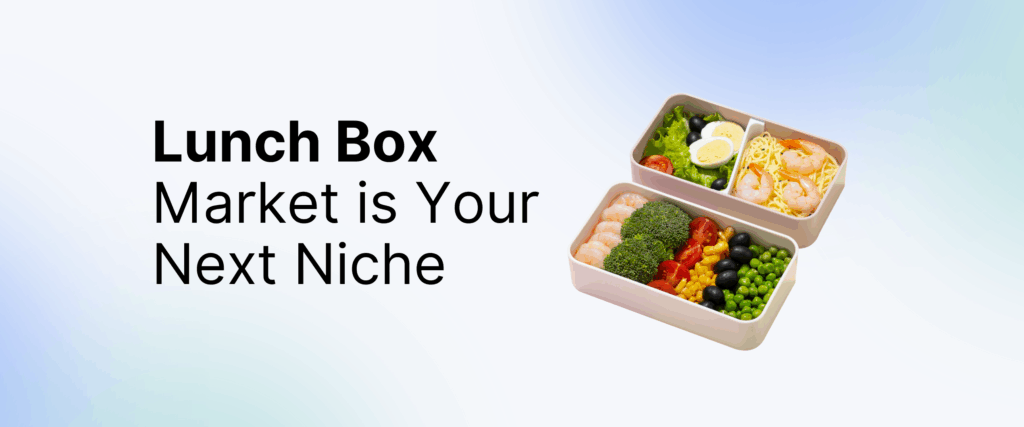When entering the business world of ecommerce, dropshipping is a term you will definitely need to catch up with. It describes a business model that associates procuring products from a supplier and reselling them to acquire profit.
Yet, it is not a definite way of starting a private business. In fact, when deciding to create a unique brand, people tend to use another business model – private labeling.

These two terms tend to confuse people as they resemble a pair of very similar ways of business but are totally different from each other. Indeed, they do have the same starting point, but the finish line (the final product) is what separates them.
In order to decide what kind of model suits your intentions more, it is important to understand the differences between dropshipping and private labeling. Luckily, we’ve gathered all of the important details in one place, so you can become a know-it-all on this subject!
Before you even start making any decisions, we need to ask some questions. First up…
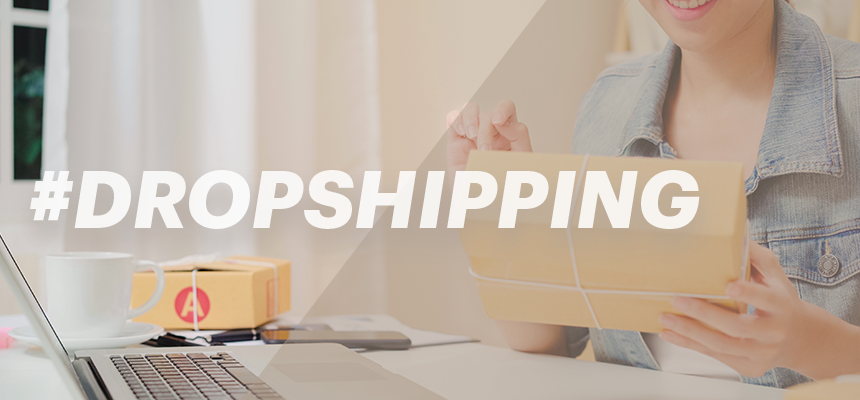
How Does Dropshipping Work?
Dropshipping is a business model which allows you to sell products directly through your online store without having to stock them yourself. The job is done by the dropshipping supplier who leverages tools – such as order processing software for small businesses – to manage the stock, process, and ship the order to the customer.
To put it simply, when a customer places an order in your online store, you forward it to the dropshipping supplier who takes care of it and ships it directly to the customer’s address.
Some of the basic characteristics of dropshipping are:
- Selling products that are not stored in a private inventory
- Shipping items only after they are successfully bought
- Cooperating with reliable suppliers
- Delivering goods remotely in a quick and cost-effective manner
- Outsourcing the process of running a warehouse
And here are some top benefits of dropshipping:
- No need for a warehouse or inventory management
- Flexible profit
- A quick and reliable order fulfillment process
- A wide variety of delivery alternatives is available
One of the most common questions raised about this business format is: will your customers be aware that the package isn’t delivered by you? And the answer is – no they won’t be.
When dropshipping, the key step is letting your supplier know you’re doing it. To make sure everything will go the way that is best for you, when having a conversation with the supplier, you can ask them not to include invoices or any kind of promotional material in the package. Probably they will do so without even asking them.
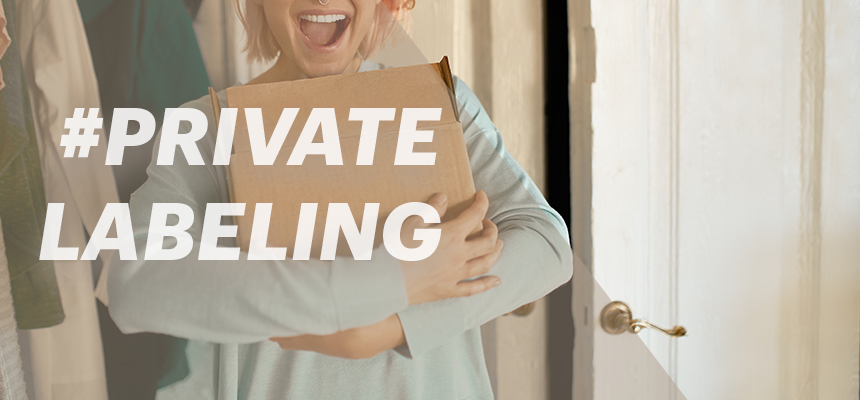
Another Way of Dropshipping: Private Labeling
Receiving a completely brand-less product may appear deceiving to a customer.
Being completely blank and unbranded, products have a lower perceived value. In dropshipping, it is not always case, at all. Products are not necessarily unbranded, as you can be the reseller of the chosen brand!
However, there are merchants who would like to have their brand name on the products they are reselling. That’s why there are ecommerce businesses who use private labeling.
Private labeling is another way of dropshipping, with certain differences. At its core, it represents dropshipping third-party goods, relabeled as a branded item.
Private labeling gives you complete control over what things you sell, how they are sent, and how they are repackaged.
These are the key traits of this trading format:
- Selling items that you didn’t create, nor manufacture
- Collaborating with a vendor to market their products solely to your target market
- Simple profit made from already existing products
- Cuts straight to marketing and sales instead of doing research and developing a product
Some of private labeling’s top benefits are:
- Having the right to claim a product as your own
- As your product range expands, so do your earning potentials
- Reduced dependency on things purchased in bulk
As a result of private labeling, you are the only one who sells that specific good with that certain characteristics.
Another way of product sourcing is white labeling. Almost identical to private labeling, with one key difference – it does not give you exclusive sales rights.
A hundred other sellers like you might buy the product from the same producer. To put it another way, you buy a generic product and re-brand it to sell it to the public.

Practices To Follow In Order to Succeed
Both dropshipping and private labeling requires effort for them to develop into a sustainable and successful business. But, thinking ahead and thinking only about important aspects you can manage is key to success.
There are a few traps you can land yourself into if you’re new in this field, but grasping your mind around the following ideas will keep you out of potential trouble:
- Be proactive in creating your online catalog. When you don’t spend time developing a product, you have more time for other things. However, that doesn’t imply your marketing should suffer. From the start, make sure your clients can easily locate the things you sell.
- Connect with a trustworthy provider. As a firm that doesn’t produce its own products, you don’t want your supply chain to dry up or take a long time to deliver. As a result, you may not be able to complete all of your customers’ requests at once. Make sure you do your due diligence before agreeing to an exclusive arrangement with a partner.
- Have a solid ecommerce marketing plan in place. Thousands of individuals profit from dropshipping since it is so simple. You need a strong brand presence in order to stand out. Retaining customers requires showcasing the best characteristics of your items through eye-catching images and compelling language.
- Bookkeeping doesn’t have to be your job. As your business evolves, regular recording and organization of financial transactions become required. It can turn mind-boggling, and as a very important part of the job, you wouldn’t like to mess it up. To avoid unnecessary inconveniences, reach out to some of the best accounting companies out there that can help you with complicated taxes and business growth.
- Be prepared for the worst. You must have a plan in place in the event that any part of your dropshipping business fails. Even if things don’t go according to plan, you should have a backup plan in place for each part of your company so you bounce back more easily.
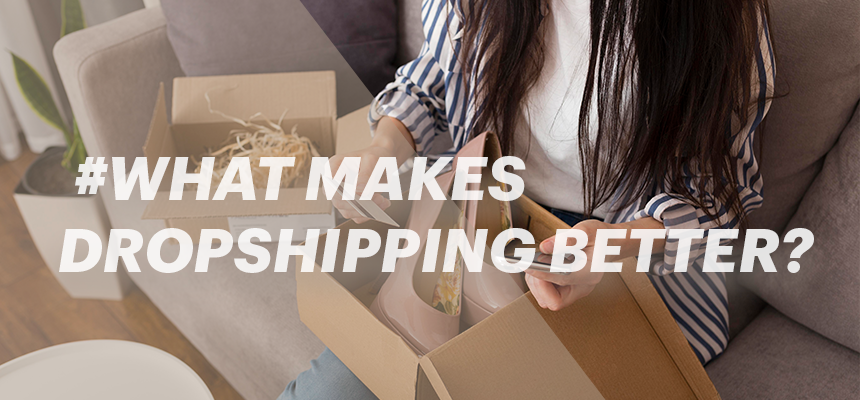
What Makes Dropshipping Better Than Private Labeling
… and the other way around. Both sourcing formats have their amazing advantages, but also less bright sides. None of them will exclude one of the systems as a less-worthy one, but will help you understand what kind of engagement you will meet up with.
Dropshipping Advantages
- Time-efficient and easier to kickstart. Dropshipping is a better alternative to private labeling since it is considerably simpler to get started. All you have to do is find a supplier and try to sell their items!
- Considerably cheaper products. In general, private label items cost more to buy since they need more labor to make. For example, if you want a personalized logo.
- No low-order minimum. You may be asked to acquire private label items in bulk by your supplier before you begin working with them. These one-of-a-kind items aren’t worth your supplier’s time and money to make one-by-one.
- You can find reliable B2B dropshipping suppliers offering and representing great value. You can be the reseller of their branded goods and it is absolutely right. Imagine being the first business selling a certain kind of product in your country! Customers will love you. If you are not the first one: customers can still find you first. Make sure you represent professionalism with your business and it stands out.
- The selection of dropshipping suppliers is great. It’s sure you will find products that best suits your business needs. These suppliers are not hiding, you can find them on dropshipping marketplaces.
- Great for not only new stores but existing ones as well. Dropshipping is the easiest way to start an online store – no doubt. Furthermore! If there’s an already existing store, dropshipping is the greatest and simpliest way to extend their product selection in just a few clicks.

The Convenience of Private Labeling
- Product branding included. The perceived worth of a product might be lowered if it is sold without your company’s brand or name – thought it is not necessarily the case at dropshipping at all. In private labeling, products are sold with your brand.
- Fewer levels of competition. Anyone may set up an online store and sell the exact same thing that you do, no matter where they are in the world. With private labeling, you’re the sole seller of that particular product.
- Consumer loyalty. Your company’s name and emblem are prominently shown on a product from private labeling, which can boost consumer loyalty and word-of-mouth marketing.
How to Choose a Better System For Yourself
With all of the pros and cons explained, the next step is choosing the right trading system for your business.
Usually, newbies are almost always recommended to start with dropshipping first as it leaves less space for failure. When you see your online store starting to grow and becoming more popular, you can try something new, private labeling if you are interested in it. It’s all about creating an experience around your brand, and if you are up for a creative challenge, it is a great way for your left brain hemisphere to work!
Conclusion
Items coming from private labeling do have a soul since they include a piece of the brand’s identity. Combined with a compelling online store, it can become impactful and very profitable.
However, dropshipping still resembles a ship that is not likely to sink any soon. Like a well-oiled machine, dropshipping continues to be a reliable business model for years ahead. It can also be a very profitable business for both new and existing store owners, no doubt. Dropshipping is the best friend of store owners, there are great potentials in it. Just don’t forget about marketing your store well. You can’t just sit and wait for orders to come without any marketing activity.
Having this all-rounded knowledge now, it is up to you to decide on what kind of adventure you will depart! Dropshipping or private labeling. Based on your interests, experience, as well as the amount of time and energy you are willing to give, you are the creator of following your path.
Either way you choose to go, with a good idea and a fascinating marketing plan, we are sure you’ll have a good time developing the business you always wanted to have!
If you are looking for new supplier partners, we recommend you discovering the Syncee Marketplace where you can find millions of products from reliable local and global dropshipping suppliers.
Author Bio:
Harold Ader is a digital marketing specialist and freelance blogger from Manchester. New trends in digital marketing and digital commerce are his main focus. In his spare time, he writes a lot for DigitalStrategyOne.



